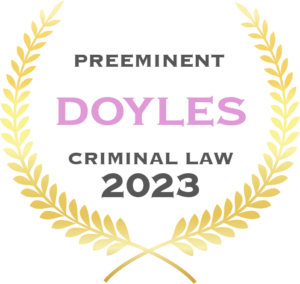Spent Convictions NSW
Criminal records in NSW are regulated by the Criminal Records Act 1991 (NSW).
The Act implements a scheme to limit the effect of a person’s conviction for a relatively minor offence if the person completes a period of crime-free behaviour. On completion of the period, the conviction is to be regarded as spent and, subject to some exceptions, is not to form part of the person’s criminal history.
The Definition of a ‘Conviction’
A ‘conviction’ is a finding that an offence has been proved, or that a person is guilty of an offence.
How long does a conviction stay on your record?
How long a conviction will appear on your record will depend on the offence that you have been convicted for. Some offences are capable of becoming ‘spent’ which means:
- You do not have to disclose to any other person for any purpose information concerning the spent conviction,
- any question about your criminal history is taken to refer only to any non-spent convictions, and
- certain laws surrounding convictions will not apply to the spent conviction.
If you are found guilty of an offence at court, but no conviction is recorded, this means that your conviction is ‘spent’ immediately. If you are convicted, it will become spent (save for in the circumstances outlined below) 10 years after the conviction as long as during this time, you have not been convicted of another offence punishable by imprisonment.
Are all offences capable of becoming spent?
Section 7 of the Criminal Records Act 1991 outlines that all convictions are capable of becoming spent, except:
- Convictions for which a prison sentence of more than 6 months has been imposed;
- Convictions for sexual offences;
- Convictions imposed against bodies corporate;
- Convictions prescribed in the regulations.
Can spent convictions NSW still be considered in some circumstances?
Even if a conviction has become spent, the police can still give information about the conviction to another law enforcement agency, or to the court in compliance with a court order. Evidence of spent convictions may be adduced in other court proceedings, including on sentence.
Spent convictions NSW may be considered for a working with children check, a workers check under the National Disability Insurance Scheme, or if you are applying for a position as a:
- Judge,
- Magistrate,
- Justice of the peace,
- Police officer,
- Teacher,
- Teacher’s aide,
- Member of staff of Corrective Services
Spent convictions NSW for arson can be considered if you apply to work in fire-fighting or fire prevention.
It is against the law for a person to disclose, without lawful authority, information concerning your spent conviction (other than to you). The maximum penalty for doing so is a $5,500 fine or 6 months’ imprisonment or both.
Key Takeaways
- NSW's Criminal Records Act 1991 allows certain convictions to become "spent" after 10 years, meaning they're not listed in most personal criminal history checks.
- Convictions eligible to become spent include those not resulting in a prison sentence of more than 6 months, with exclusions for sexual offenses and crimes against corporate entities.
- Spent convictions can still be disclosed under specific conditions, such as for jobs involving children, judicial positions, or police applications.
- Unlawfully revealing someone's spent conviction is a punishable offense.
How we can help (Spent Convictions NSW)
As you can see, a criminal record can have serious consequences on employment prospects. Therefore, if you have been charged with a criminal offence it is vital to seek advice from an experienced criminal lawyer.
Need advice? Contact the team at Hamilton Janke Lawyers 24/7 by calling 4038 1666.
Written By

James Janke
James Janke is founding partner at Hamilton Janke Lawyers, and has more then decade of experience as a Criminal Defence Lawyer. Admitted to both the Supreme Court of New South Wales and High Court of Australia



